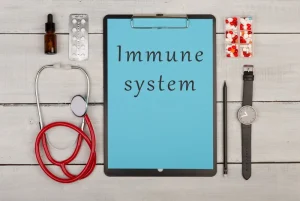Foods such as citrus fruits, bell pepper, strawberries, tomatoes, and potatoes are all high in vitamin C. The B-complex vitamins are often deficient after prolonged heavy drinking. “If we give thiamine to a whole bunch of people who don’t really need it, there is no harm done,” Shiling said.

Foods for Your Brain
Deficiencies in vitamin C can cause symptoms that include irritability, weakness and muscle fatigue. The best source of vitamin C in the United States is orange juice from frozen concentrate (more of the vitamin is preserved when the oranges are frozen). Francisco Church is a rehabilitation specialist and the chief editor of Recovery Ranger. He creates this site to offer guidance and support to individuals seeking to overcome addiction and achieve lasting sobriety.
Vitamin B12

Thiamine supplements are recommended for all people undergoing alcohol withdrawal (see ‘Wernicke–Korsakoff’s syndrome’ below). For patients with no clinical features of Wernicke’s encephalopathy or memory impairment, thiamine is recommended as a prophylactic measure. The evidence base to guide dosing is limited with no new trials in recent years. Protein is naturally occurring in many foods and is made up of building blocks called amino acids.
Vitamins and Minerals for Alcohol Withdrawal
Of course, these are only 12 helpful options—there are many vitamins and supplements for alcoholics you can take to aid your system in recovery. We recommend speaking with your doctor about how heavy drinking has impacted your body, and which supplements will be the most safe and useful for you as an individual. Other new habits, such as regular exercise, mindfulness practice, and a healthier diet, can all contribute to boosting your health in recovery.
- People who overcome addiction and stay sober typically do so with the help of seasoned, dedicated professionals like our team at Alcohol Awareness.
- You can also sneak in these vitamins (and others) through a healthy diet.
- An amino acid, L-Glutamine helps reduce overall cravings by playing a proactive role in regulating the brain’s neurotransmitters.
How Doctors and Nutritionists Can Help

This mineral is essential for the production of melatonin, which can help regulate sleep. During alcohol withdrawal, L-Glutamine may help reduce cravings and improve cognitive function. It has also been shown to have a calming effect on the brain, which can be beneficial for those experiencing anxiety or restlessness during withdrawal. B-vitamins are a good place to start for recovering addicts, who may have deficiencies in these cofactors needed to produce neurotransmitters and feel-good hormones. I discuss the benefits of these 7 fatty acids and amino acids for alcohol detox in much more detail in a related article. And even if you don’t struggle with addiction, these nutrients are still great for optimal brain function and mental health.
Best Foods and Supplements for Recovery
B vitamins are a group of eight vitamins that have similar functions. They are essential for energy production, metabolism, and brain function. Alcohol can deplete the body’s stores of these vitamins, leading to deficiencies. Replenishing B vitamins can help reduce symptoms of alcohol withdrawal, such as fatigue, depression, and irritability. Taking a B-complex vitamin supplement can ensure that your body has the B vitamins it needs to cope with alcohol withdrawal.
What Vitamins Help With Alcohol Withdrawal Symptoms?
- Smokers have lower levels of omega-3 fatty acids, and treatment with fish significantly reduces their level of dependence (25, 28).
- The evidence base to guide dosing is limited with no new trials in recent years.
- When you drink too much, you’re more likely to eat foods that are high in added sugar, salt, and saturated fat.
- Researchers have also studied the relapse rates of cocaine addicts discharged after a period of detoxification.
- Detox and alcohol withdrawal supplements go hand in hand to get the body ready for recovery from substance abuse.
Vitamins such as B-complex, vitamin C, and vitamin D can be particularly helpful for recovering alcoholics. Alcohol abuse can severely deplete the body’s vitamin and mineral stores, leading to nutritional deficiencies that can worsen withdrawal symptoms. By replenishing these essential nutrients, you can help your body heal and recover more quickly from alcohol withdrawal.

The chronic administration of vitamin C can also prevent the development of tolerance and physical dependence on morphine (59, 69). However, I still recommend at least short-term is sneezing a sign of withdrawal zinc supplementation to ensure you get enough. Some of the best food sources of zinc include oysters, grass-fed beef, pumpkin seeds, cashews, mushrooms and spinach.
- B vitamins are readily available in supplement form; look for B Complex detox supplements that contain all the B vitamins.
- At this point, a specific dosage for alcohol withdrawal is unknown due to a lack of studies on this subject.
- Conventionally, it’s done in a controlled (often medical) setting for a period of four to seven days.
- During alcohol withdrawal, your immune system health is compromised due to added stress, which hinders normal nervous system functions.
- Keep in mind that taking supplements while continuing to consume alcohol can overwork your liver and lead to other medical complications.
- One factor to remember is that the discomfort of withdrawal is only temporary.
Some people also choose to complement their alcohol withdrawal vitamins with herbal supplements. One option is high doses of oral vitamin B supplementation, which can help correct deficiencies without causing adverse effects. However, these supplements may not provide enough vitamin B1, which is essential for preventing a condition called Wernicke’s encephalopathy (WE), a medical emergency. Therefore, doctors treating individuals detoxing from alcohol might prescribe additional treatments with vitamin B1.
Acute alcohol consumption inhibits the activity of glutamate receptors, just like illicit drugs and other harmful substances can. When that happens, consequences are felt in memory and motor coordination (ability to walk/move properly). Additionally, toxicity in brain cells occurs, thus leading to neurodegeneration.
